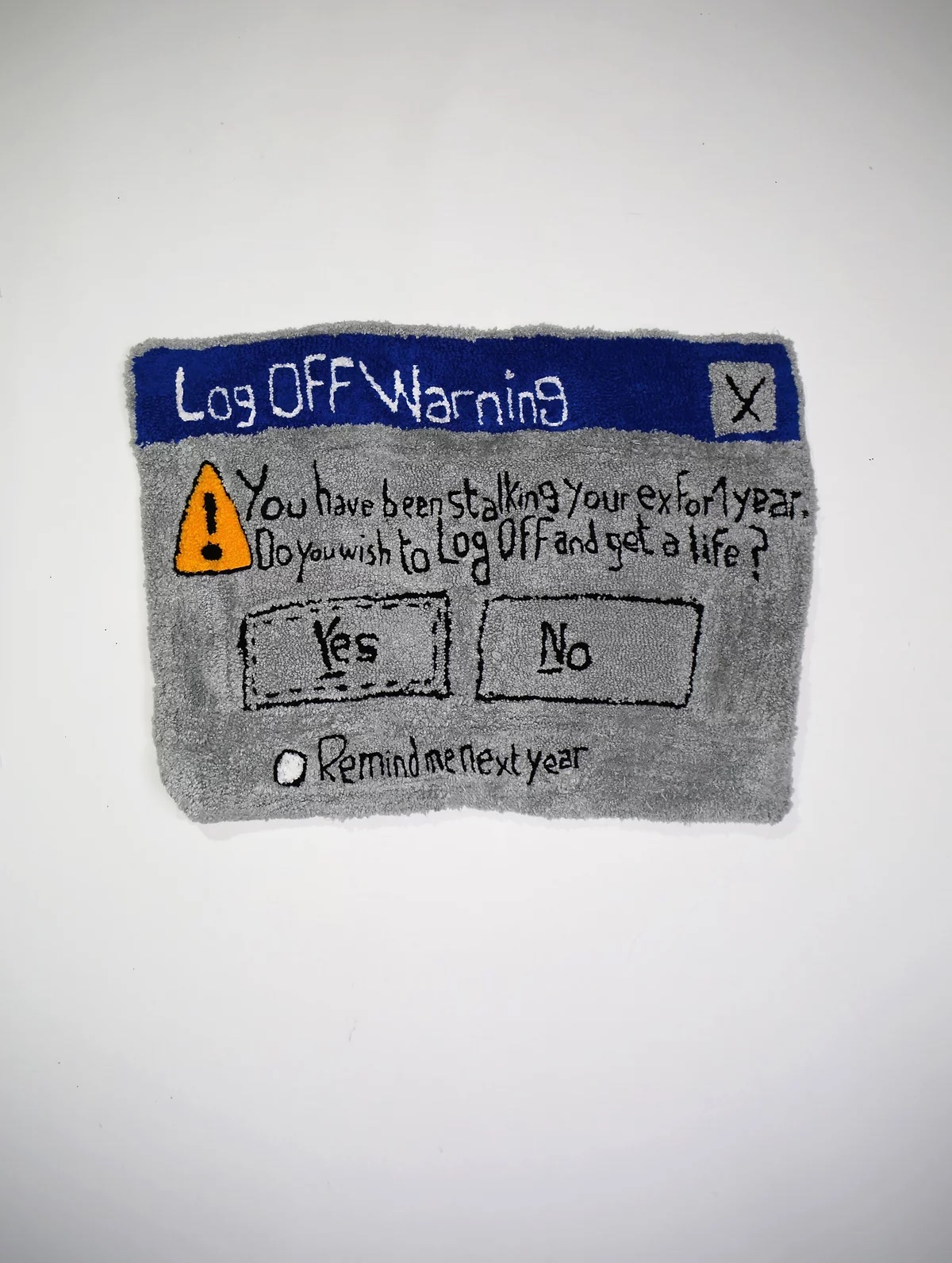
I really enjoyed watching this video published on People Make Games YouTube channel. It gives an amazing perspective on the topic of virtual worlds beyond hype and corporate bullshit.
Dracula Daily

“Dracula Daily is an email newsletter by Matt Kirkland that sends you a chapter of the Bram Stoker novel Dracula, written as a series of dated diary entries, news clippings, letters, etc., in realtime on the actual date of each entry between May 3rd and November 10th, the dates between which the novel takes place. The newsletter launched in May 2021 and became increasingly popular during its 2022 run, particularly on Tumblr, where it caused memes and posts about Dracula to trend.” – more info here
[via]
Hide and Seek
Hide & Seek is a painting by Pavel Fyodorovich Tchelitchew, a Russian surrealist artist, that has gained a cult following of people who love to stare at it while taking Peyote.
Infinite Images

Holly Herndon and Mat Dryhurst experimented with the new OpenAI DALL·E 2 software and they wrote a very interesting report about it. Check it here.
NFTs do not go bad
Michael Moynihan: “Can you explain to people who might be confused as why a very smart, sensible man like yourself, would spend 500,000 dollars on a jpeg?”
Metakovan (aka the most famous cryptoart collector): “I can have it forever because it’s on the blockchain, I DON’T LOSE IT and IT DOES NOT GO BAD”.
A microwave with a soul
YouTuber Lucas Rizzotto fitted his microwave with voice-controlled AI in order to resurrect his childhood imaginary friend “Magnetron”. But at some point things got scary…
Computer Art pioneers: Joan Shogren
 I’ve been studying early Computer Art quite a lot in the past ten years, but I just discovered a new artist I never came across before. Click here for the story of Joan Shogren, a secretary who, back in 1963 (so before Micheal A. Noll and Frieder Nake, but also before Sol Lewitt’s conceptual wall drawings based on instructions), “suggested that computers should be able to ‘design a picture’“.
I’ve been studying early Computer Art quite a lot in the past ten years, but I just discovered a new artist I never came across before. Click here for the story of Joan Shogren, a secretary who, back in 1963 (so before Micheal A. Noll and Frieder Nake, but also before Sol Lewitt’s conceptual wall drawings based on instructions), “suggested that computers should be able to ‘design a picture’“.
Joan’s artworks were exhibited two years before the famous “Generative Computergrafik” exhibition at the Technische Hochschule in Stuttgart in 1965, which is generally considered to be the very first computer art public show.
[via]
The Depths of Wikipedia
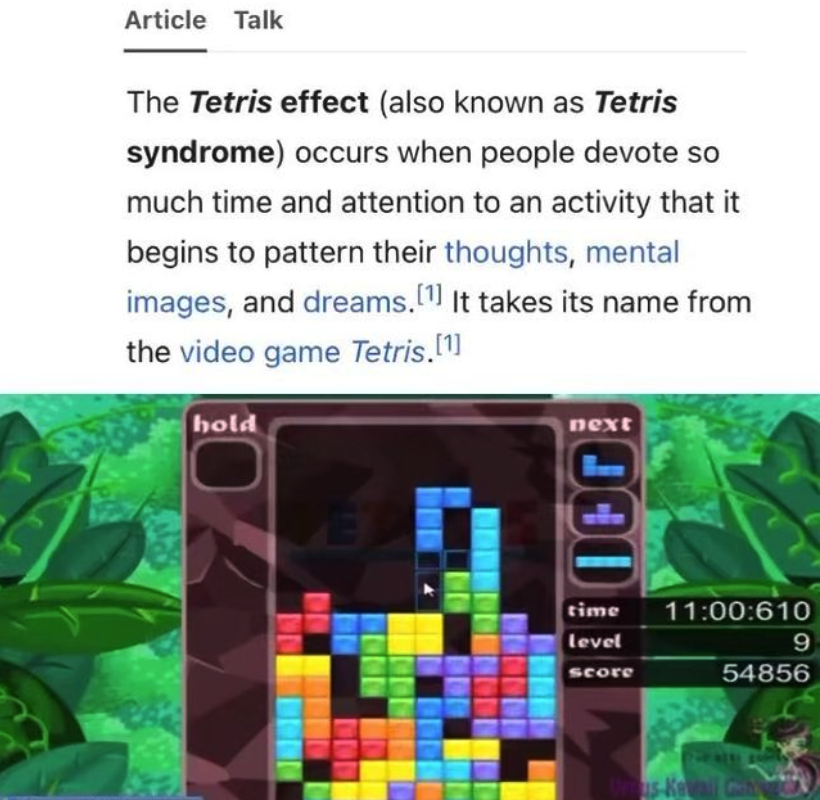
Depths of Wikipedia is an amazing resource. It is an Instagram, Twitter, and TikTok account dedicated to highlighting strange, obscure, and interesting facts from Wikipedia. It is run by Annie Rauwerda, a college student at the University of Michigan.
DALL·E 2
“Artificial intelligence company OpenAI has released its latest creation, called DALL-E2 — a genuinely impressive demonstration of the power of generative adversarial networks. The system can turn simple text descriptions into photorealistic images. While that may sound like a simple task, it’s deceptively difficult for a machine learning algorithm to pick up on the cues of natural language, nevermind produce the crisp, evocative images that OpenAI is showing off.”
[via]
Organic Smiles Cereal Commercial
“Organic Smiles Cereal Commercial” is an analog horror video made by Nathan Frost. With a great backstory:
“On August 23rd, 2015, a user posted on a message board and asked “what’s a scary story that freaked you out when you were younger?” a user responded by saying ” My grandfather used to always tell me a story about a commercial test screening that he and his friends went to when he was younger. He always told me that it was a Cereal advertisement from a company called Organic Smiles. I’ve looked up the brand and it literally does not exist. He said that the commercial had distorted-faced mannequin women and long blood faces. He didn’t watch the whole thing as he ran out of the theater crying but his friends did watch it all and were absolutely traumatized by it. Later that year he said all the people who attended that screening went missing. At the time I totally believed it but now I realized that he had to have been screwing with me, but he always had a serious look on his face when he told me about it.
The response at the time didn’t gain much traction until a year later on September 4th when the same user that posted the story said they found the supposed commercial on film tape that was mailed to him somehow. Later that day the user started posting screenshots of it showing its authenticity and proving it was real. Other users were getting excited and many were highly anticipating it.”
[via]
BeReal
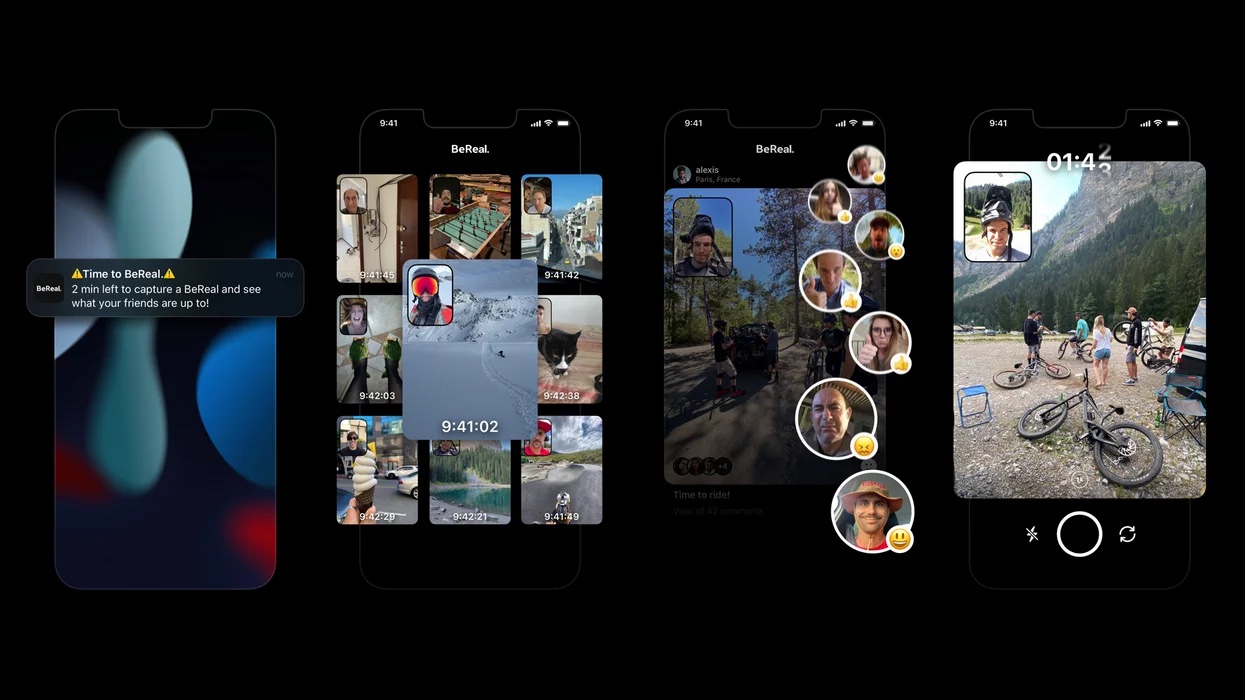
“The app’s premise is simple: Each day, every user worldwide gets a simultaneous, cartoonish notification, “⚠️ Time to BeReal ⚠️ 2 min left to capture a BeReal and see what your friends are up to!” Opening the app prompts you to snap a photo, which captures your front and back camera (no access to the camera roll) and posts to a simple chronological feed of friends’ posts which you cannot view until you’ve added a photo yourself.”
BeReal. The app that promotes aggressive normalcy.
[via]
Reddit Place 2022
Place is a collaborative project and social experiment hosted on the social networking site Reddit that began on April Fools’ Day 2017 and was revived again after five years on April Fools’ Day 2022.
Reddit Place (/r/place) – FULL TIMELAPSE 2022
Paris Filter Trend
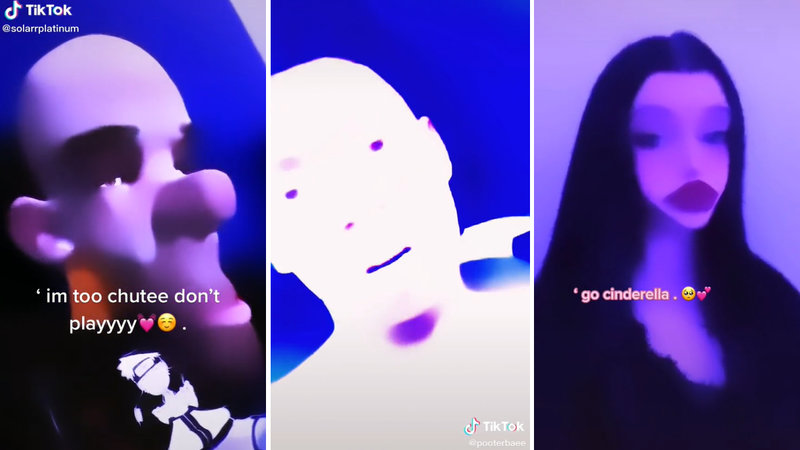
“A TikTok trend where users apply Instagram’s Paris filter numerous times to a selfie video of them posing while the song “Fancy” by Drake plays, the filter applied to the point where the video is obscured and washed out in pink and purple. The videos are often captioned “no filter,” a joke about people who post obviously edited photos online under the guise of being natural”.
[via]
A very good Plato meme
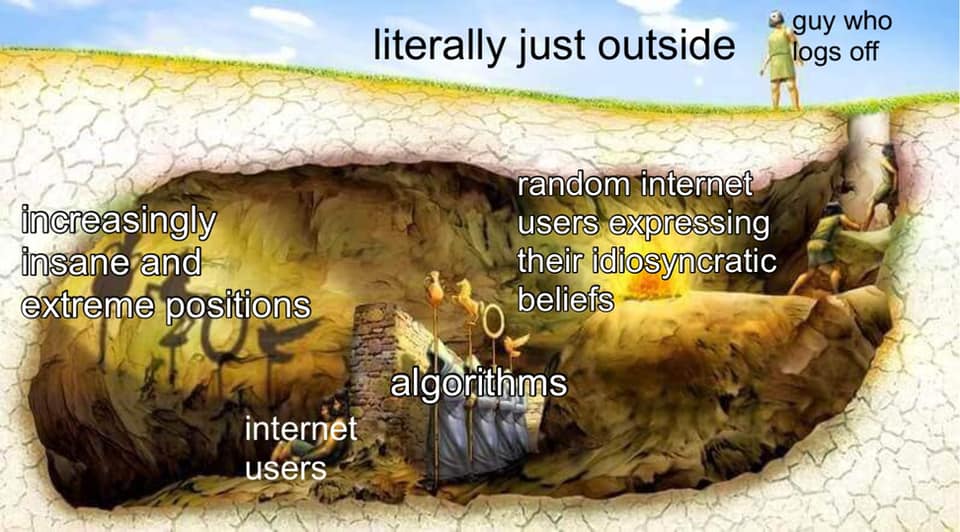
[via]
Can not do nails
Chris Burden, Untitled, 1974 – Lithograph with hand-colored appliqué, ed. 50
(presumably a note from his partner asking him NOT to nail himself to that Volkswagen).
[via]
Uncanny Robot Podcast
Photography and AI

“Apple’s newest smartphone models use machine learning to make every image look professionally taken. That doesn’t mean the photos are good.”
[via]
Open-source intelligence

“Under the pseudonym Intel Crab, University of Alabama sophomore Justin Peden has become an unlikely source of information about the unfolding Ukraine-Russia war. From his dorm room, the 20-year-old sifts through satellite images, TikTok videos, and security feeds, sharing findings like troop movements and aircraft models with more than 220,000 followers on Twitter. Peden said that his posts have reached 20 million people and his follower count has increased by over 50,000 people over the past month, according to his Twitter analytics.
Today, Peden is one of the most prominent open-source intelligence (OSINT) figures on Twitter”.
[via]
Web Tapestries
Eva Ostrowska (b.1989) is a French visual artist whose mixed media work offers critiques of social dynamics and romantic relationships using a raw and unapologetic combination of humour, sarcasm, and irony. Ostrowska provides a commentary on love and relationships in the digital era, the dissonance of which is made even more impactful through the use of ancient mediums such as weaving and knitting to depict modern digital realities like the text message.
When Guys Turn 20

For the past several years, artist Joshua Citarella has targeted his research-based practice on the political behaviors of the young and very online. Jacob Hurwitz-Goodman has similarly used his documentary practice to investigate emergent political modes like Seasteading. Together in When Guys Turn 20, they explore how users across the political spectrum deploy memetic tactics on social media, as well as how the rhetoric and reality of Silicon Valley diverge.
Cycling through a variety of locales and roles (teacher, Twitch streamer, prisoner, Sith Lord), Citarella narrates online political methods and mechanisms of propaganda. From MMORPGs as a proof-case for socialism to the tricks of meme extremists to the problems of Big Tech, When Guys Turn 20 offers a behind-the-servers glimpse into various expressions of platform capitalism.
[via DIS]
Karaoke Torii

Karaoke Torii (2017), by Benoit Maubrey
300 recycled loudspeakers, Bluetooth receivers, microphone, line in, 1 amplifier. A 4-channel speaker system allows the public to express themselves directly via a microphone, a line in or their smart phones and wireless technology.
Commissioned by Kamiyama Artist Residency Program (KAIR) , Japan
12′ x 15′ x 2′ – Also commissioned by the Kobe Biennale 2015
Art belongs in a frame
You can ramble about “newness” in art as long as you want, but in the end everything ends up in a frame, over a couch (or an armchair).
Life on the CAPS

Life on the CAPS is a film trilogy by artist Meriem Bennani. It is set on a fictional island where American troopers have exiled immigrants who attempted to enter America via teleportation. In the world of the CAPS, teleportation has replaced air travel, and displaced populations utilize this portal to cross oceans and borders. Layering live action footage and computer-generated animation, Bennani intuitively adapts editing techniques that evoke documentary film, science-fiction, phone footage, music videos, and reality TV.
[via]
A Supercut of Supercuts
A video essay by Max Tohline.
“Three years in the making, this feature-length pop-academic investigation of the SUPERCUT asks where supercuts came from, how they hold our attention, and why they became so popular when they did. Tracing back the genetic lines of experimental film, fan remix, documentary, news, and more, this video essay uncovers the roots of the supercut well before YouTube: back in the 1920s and beyond. These multiple interlocking genealogies reveal that the supercut isn’t just a new form of compilation editing; rather, it’s a new way of thinking expressed by a mode of editing. In fact, the supercut is only a small part of a much larger story about a culture that traded one paradigm of knowledge and power, that of the archive, for a new one: the database.”


